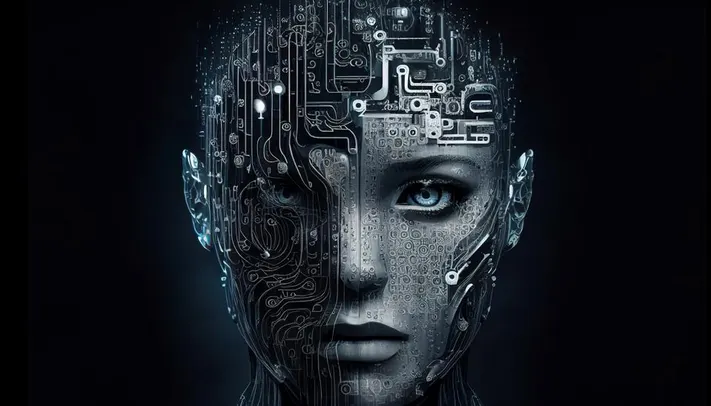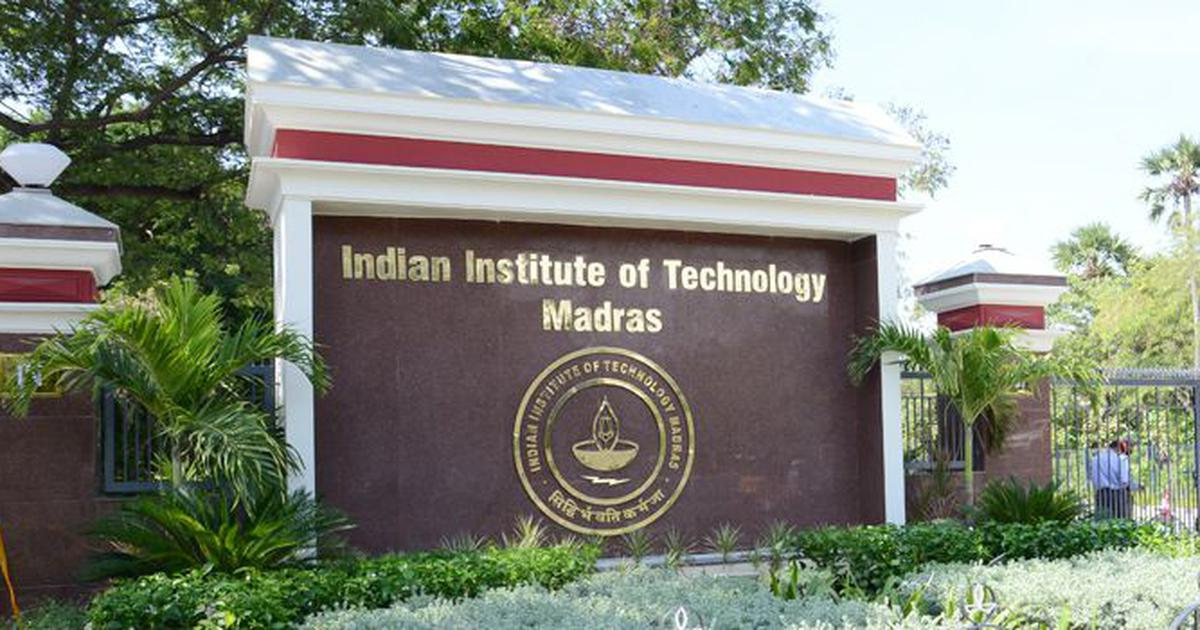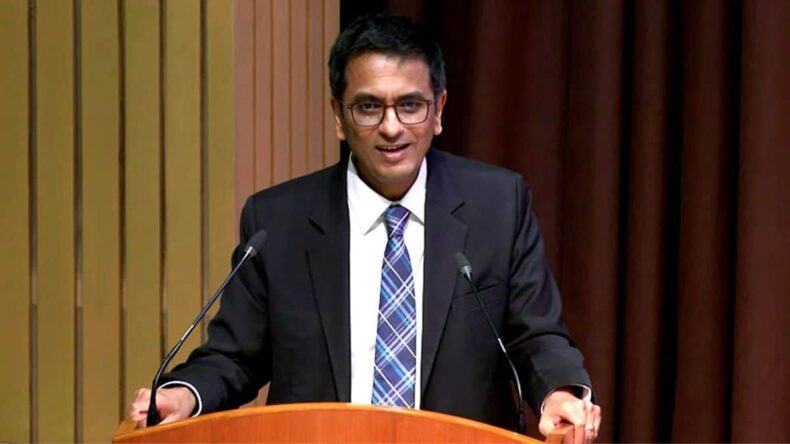D. Y. Chandrachud, the Chief Justice of India, issued a cautionary statement regarding the danger of artificial intelligence (AI) making prejudiced judgements based on societal prejudices and undermining the right to fair treatment. On Saturday, he delivered a speech at the 60th Convocation Ceremony of the Indian Institute of Technology (IIT) Madras.
CJI D. Y. CHANDRACHUD ON ARTIFICIAL INTELLIGENCE
According to the CJI, artificial intelligence (AI) is being rapidly implemented to improve the effectiveness of computer hardware and software, but it also has the potential to amplify discrimination and marginalize the social control mechanisms that regulate human behavior.
“The potential for AI to magnify prejudice and weaken the right to fair treatment is a substantial consequence. It has been demonstrated that many AI systems make biased decisions based on data inputs that reflect societal preconceptions. For instance, firms’ AI recruitment tools tended to favor males over women since they were honed using the resumes of successful employees, who tended to be mostly men for gendered reasons. Data-driven systems may do this by marginalizing social control mechanisms that regulate human behavior and perpetuating biases.”
The CJI also voiced concern about the ways in which AI might be abused to produce deep fakes, to mislead, and to intimidate people.
“Today, everyone is talking about artificial intelligence (AI). The use of AI is expanding quickly to improve the effectiveness of computer hardware and software. AI tools like ChatGPT have demonstrated in a relatively short amount of time that even computers are capable of writing jokes, codes, and even legal papers. Even in the Supreme Court, live transcripts of court hearings are being transcribed using AI as part of a pilot programme. The worries expressed by many people regarding the arrival of AI are an illustration of how new technologies do not appear out of nowhere. Always be conscious of the values AI symbolizes and the opportunities it opens up. The AI picture-generating software, which enables you to enter a written prompt and produce an image, has personally captured my attention, but I’m also aware of its potential for abuse to produce convincing fakes, to mislead , and to intimidate people.”

When developing new technology, the CJI pushed the students to keep human and societal values in mind. According to him, technology shouldn’t instill users with a dread of it or prevent them from freely and openly expressing their ideas.
“Technology should not in any way make users afraid of harassment or abuse they may encounter online. Such worry will negatively affect our capacity for unrestrained and unfiltered thought. The law will intervene to protect individual rights when technology alone is unable to handle the undesirable behaviors made possible by recent innovations.”
In addition, he emphasized that technology has the capacity to make us resistant to challenges that threaten our liberties in the future and that every small advance in technology has the potential to revolutionize people’s lives, heal societal divisions, and ensure justice for everyone.
“The ability of technology to enable each person’s liberties and human rights is its true redemption. Future challenges that threaten our freedoms in the future can be made more resilient by technology.”
The development of technology, he continued, does not occur in a social vacuum but rather inside a complex web of societal realities and legal, economic, and political frameworks.
“Technology doesn’t advance in a social vacuum, which is why. They take place inside a complex web of societal realities, legal systems, and economic, political, and institutional frameworks.”
The CJI also discussed how no technology is neutral and how, when used in the actual world, it might represent human values.
“There is no doubt that electronic communication embodies the virtues of cooperation and communication. Additionally, it opens the door to the possibility of widespread surveillance of our most private and sensitive thoughts and data.”
He provided an illustration of how the use of video conferencing technology goes beyond simple communication and collaboration to include everyone and provide access to justice.
“Science and technology should be viewed as important contributors to human growth. Beyond communication and collaboration, video conferencing technology has benefits for access to justice and inclusivity.”
At the 60th convocation, 2,573 students received diplomas, including 453 PhDs, 674 BTechs, 407 dual degrees, and 442 MTechs.
AI IN INDIAN JUDICIARY
AI is a rapidly evolving technology that has the potential to transform various sectors and domains, including the judiciary. AI can assist in reducing case backlogs, improving judicial efficiency, enhancing legal research, and automating processes. However, AI also poses some challenges and risks, such as bias, accountability, transparency, and ethical implications. In India, the judiciary has been exploring the use of AI in various ways, such as in translation of judicial documents, legal research assistance, and process automation.
While AI can offer many benefits to the Indian judiciary, it also requires careful consideration and regulation to ensure that it does not violate human rights, privacy, data protection, or fairness. AI should not replace human judgment or discretion, but rather augment and assist it. AI should also be transparent and explainable, meaning that it should provide clear and understandable reasons for its decisions and actions. Moreover, AI should be developed and deployed by diverse and ethical stakeholders, who follow ethical principles and guidelines for responsible AI.














